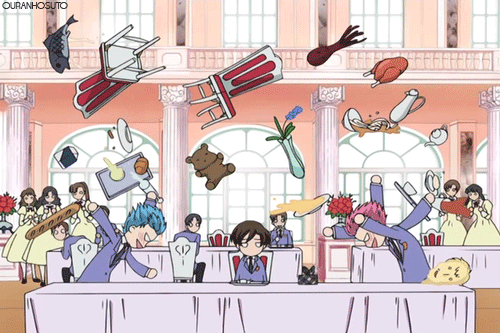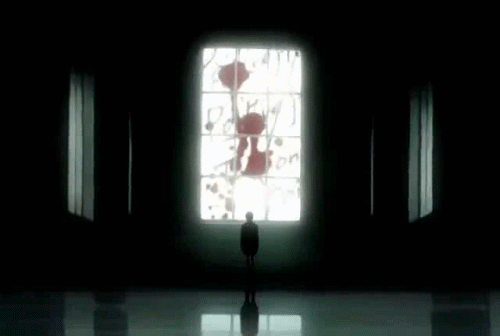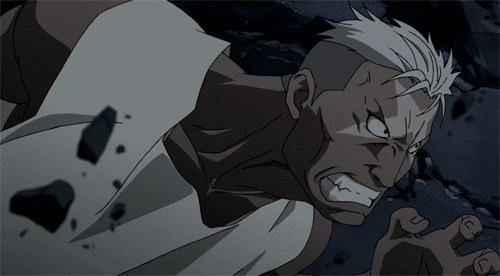So its the final day of National Novel Writing Month. At this point I'm sure many of you, like me, are scrambling to reach their 50,000 word count. But I'm taking a break in this moment to talk not only about succeeding at the NaNoWriMo challenge but failing it as well.
Today, some of you will hit your 50,000 words. Some of you already have and are going for an even larger word goal. And that's AMAZING. Maybe 80% of the words are crap. Maybe you don't even know if it works as a story. But you wrote a novel in a month. That's an astonishing feat of dedication. You worked hard and even if you don't come back to this novel in the near future, you earned some valuable writing experience.
For some of you, maybe this is the first novel you've ever finished. That's even more amazing, because now you know you can do it. With enough hard work and dedication, you can type 'the end' on a book. I hope you write many, many more.
For others this is their tenth novel. Which is also SO cool. You've put out so many books and even if they haven't all been winners, some of them are. Some of them have or will taken you all the way to down the publishing road.
If you won this year's NaNoWriMo, pat yourself on the back. Take a breath. Then put away your draft and take a well deserved break. You can edit out all the terrible parts later.
But some of you may have "lost" NaNoWriMo this year. But honestly, why think about it as a loss? Whatever you managed to write--10,000 words, 20,000 words, 30,000 etc--that's still a good chunk of a novel. You're still one step closer to a completed draft. Maybe you're close to 50,000 but you won't be able to hit it today. That's fine. Take your time. What does it matter if you finish a draft in a month and a day, a month and a week or even two months? That's still a tremendous accomplishment.
The bottom line is, NaNoWriMo isn't for everyone. Sometimes people draft slowly. That's a valid way to write a novel. As long as it gets done and you're proud of it, who cares that it wasn't written in a month? You're still a writer who wrote a whole book. Celebrate that.
I've won NaNoWriMo and I've lost NaNoWriMo. Sometimes, I burnt myself out writing in October before I hit November. Last year, my life was too emotionally tumultuous and I didn't write a dang thing in the Fall. I felt terrible about it because fast drafting is my skill. I felt so unproductive and like I lost my creative spark. But then I hit spring of 2016 and I fast drafted two novels. Those novels weren't better or worse because I didn't write them in November. They were still drafts. Messy drafts, but drafts none the less.
So if you tried NaNoWriMo at all this year, whether you won or "lost", pat yourself on the back and celebrate. Not many people would even attempt what you guys did and you deserve all the credit in the world for it. Tomorrrow's a new day of writing and who knows what it will bring!
A literary agent intern, writer and full time student treks through the forest of words
Wednesday, November 30, 2016
Friday, November 18, 2016
Lessons from Anime- Loving Parody in Ouran Highschool Hostclub and Assassination Classroom
Parody is a lot harder than you think.
It’s actually very hard to parody any movie, book, genre
etc. in a consistently clever and interesting way. Films like ‘epic movie’ and ‘Scary
Movie 1,000’ often beat the same jokes into the ground, throw in some gross
humor and call it smart satire.
Often, poorly written parody can invoke eye rolls,
especially if it doesn’t have a solid story of its own. If its just parody
without a well written plot and characters, then it’s a house built on sand.
One of the reasons I’m not that big a fan of the first Shrek movie is that at
the base of its parody of fairytales is a plot that is predictable and old as time. Which makes it kinda
boring.

But there’s another reason I’m not as big a fan of Shrek,
and that’s the point about parody I really want to emphasize today. There are
two types of parody. The most common, and often the easier to write, is hateful
parody. This satire is biting and vicious to its original source material. It hates
it. Many of the jokes are intensely mean spirited because of the deep seeded
hatred on the part of the authors. In the case of Shrek? Well maybe Dreamworks
wanted to crush Disney down to size after Jeffery Katzenberg broke ties with
them. Maybe. Shrek 2 actually
improves upon the first by being less intensely
bitter.
But while hateful parody would seem the most likely, there
is another form of parody that is just much
harder to pull off. And that is the loving parody. Loving parody truly
adores the genre or movie it is parodying. But that doesn’t keep it from making
fun of its target at every turn. And at the end of the day, rather than trying
to take the subject down a peg, they’re celebrating it for its tropes and its
good qualities.

Ouran High school Host Club is one such satire of reverse
harem and shojo manga, about a poor honor student who accidentally breaks an
expensive vase and falls in debt to her school host club. Thinking she’s a guy
because of her appearance, the host club promises to forgive her debt if she
becomes a host herself and gets one hundred girls to ask for her. And of course half the guys end up falling for her, though especially Tamaki.

The main male love interest, Tamaki is obsessed with the
role of being the main love interest but is cripplingly insecure about it. The
rest of the guys are also embodiments of various tropes, but they manage to
break out of them at various points for both comedy and drama. And the lead,
Haruhi, has no interest in the guy’s vying for her attention and is the most
down to earth of everyone.

This show has a great understanding of its trope but it’s
not trying to break its characters down. It loves them. And at the heart of the
anime is a lot of emotional sincerity. Melodramatic? Oh god yes, but that’s the fun of it. Its melodrama with enough fourth
wall jokes and loving pokes to make it quality parody.

Then there’s Assassination Classroom which is a stellar
parody of the ‘Teacher goes to a dead end class and inspires them to believe in
themselves and go for their dreams’ narrative. Except for in this case, the
teacher is a mutant balloon looking creature that blew up the moon and is going
to blow up the earth in a year. And in between inspirational lessons, the
students are trying to kill their teacher, honing their skills as assassins and
trying to raise their grades.

And it’s just…its hilarious. The situation is treated rather
casually and despite being constantly under fire, the teacher never stops
believing in his students. At every episode he helps at least one of them step
out of their shell and realize their strengths. It’s amusing to hear the lesson
coming from a yellow, tentacle balloon monster, but also oddly emotionally heartwarming.
The show isn’t condemning the subject of its parody. Its embracing it but
flooding it with humor at the same time. And the show concludes with one of the
most cry worthy scenes I’ve seen in any show.

Loving parody is just as funny as hateful parody (in my
opinion more so) but it also manages to remain sincere. Because it cares about
its characters, we care about them too when they’re in trouble. We don’t laugh
at their pain we feel it with them.
And then we laugh at them in the very next scene. It’s certainly a harder
method to pull off, but it’s worth it and ultimately so much more rewarding.
Wednesday, November 16, 2016
Notes from New York: The Importance of Comparative Titles
Welcome back to Notes from New York. Today we talk about a querying tip rather than a writing tip: specifically ‘comparative titles’, or as I always heard them referred to ‘comps’.
Comps are something that a lot of people write in their queries. In many ways, it’s a good idea. If you can compare your book to a certain title, that gives the agent some idea of what to expect and also how they might market your book in the future. If you do get an agent, part of submitting to editors is making a list of comparative titles to show where your book stands in the industry.
However, while comps can be a good thing in a query times they can work against you. So here’s a list of dos and don’ts with comps.
1. Don’t aim to high
Your book is not the next Harry Potter. Even if it somehow, spectacularly, is the next Harry Potter, you have no way of knowing that at the time of querying. Some people comp really well known, best selling titles because they think it shows their books money making potential. Really, all it does is show you don’t know the industry or you way overestimate the selling power of your work. Most books don’t sell like Harry Potter. In fact, just about all books don’t sell like Harry Potter. So don’t aim too high.
2. Do aim at the middle
It never hurts to comp a relatively well known, but not unbelievably popular title. There are a lot more of these, and chances are, it will be easier for you to find an accurate comp to your work in this category. This will better show that you know where your book stands within its genre
3. Don’t comp books your agent already represents
Mostly because, the agent already has a similar book for their list and might be less interested. An agent will love the authors that they have taken on, which means that you’re fighting an uphill battle when you claim they will love your book just as much. Additionally, they might not have room for more similar titles on their list.
4. Do comp an agents favorite books
Most agents have blogs or websites or twitters where they talk about their favorite books and TV shows. They write about these things so that people will know what to send their way. You still may be fighting an uphill battle because they have high expectations, but if they are looking for something in the vein of their favorite work, comping said work can be a way to get you noticed. Just be sure its accurate and back it up with great writing.
5. Don’t feel the need to include comps
Comparative works in the query really aren’t necessary. If you don’t have good ones or you’re not sure what to compare your book to, leave them out. The most important part of the query is the part about your book. If your query is good, you don’t need to add comp titles if you’re not sure what you’d put
6. Do still be aware of comparative titles
When you are querying you should none the less be aware of your genre, category and marketability. This will help you enormously in the querying and publishing process. Read a lot in your genre to find some comparative titles. Even if you don’t put them in your query, they will help you down the line.
Good luck querying and I hope everyone has hit the midpoint of NaNoWriMo :)
Comps are something that a lot of people write in their queries. In many ways, it’s a good idea. If you can compare your book to a certain title, that gives the agent some idea of what to expect and also how they might market your book in the future. If you do get an agent, part of submitting to editors is making a list of comparative titles to show where your book stands in the industry.
However, while comps can be a good thing in a query times they can work against you. So here’s a list of dos and don’ts with comps.
1. Don’t aim to high
Your book is not the next Harry Potter. Even if it somehow, spectacularly, is the next Harry Potter, you have no way of knowing that at the time of querying. Some people comp really well known, best selling titles because they think it shows their books money making potential. Really, all it does is show you don’t know the industry or you way overestimate the selling power of your work. Most books don’t sell like Harry Potter. In fact, just about all books don’t sell like Harry Potter. So don’t aim too high.
2. Do aim at the middle
It never hurts to comp a relatively well known, but not unbelievably popular title. There are a lot more of these, and chances are, it will be easier for you to find an accurate comp to your work in this category. This will better show that you know where your book stands within its genre
3. Don’t comp books your agent already represents
Mostly because, the agent already has a similar book for their list and might be less interested. An agent will love the authors that they have taken on, which means that you’re fighting an uphill battle when you claim they will love your book just as much. Additionally, they might not have room for more similar titles on their list.
4. Do comp an agents favorite books
Most agents have blogs or websites or twitters where they talk about their favorite books and TV shows. They write about these things so that people will know what to send their way. You still may be fighting an uphill battle because they have high expectations, but if they are looking for something in the vein of their favorite work, comping said work can be a way to get you noticed. Just be sure its accurate and back it up with great writing.
5. Don’t feel the need to include comps
Comparative works in the query really aren’t necessary. If you don’t have good ones or you’re not sure what to compare your book to, leave them out. The most important part of the query is the part about your book. If your query is good, you don’t need to add comp titles if you’re not sure what you’d put
6. Do still be aware of comparative titles
When you are querying you should none the less be aware of your genre, category and marketability. This will help you enormously in the querying and publishing process. Read a lot in your genre to find some comparative titles. Even if you don’t put them in your query, they will help you down the line.
Good luck querying and I hope everyone has hit the midpoint of NaNoWriMo :)
Wednesday, November 9, 2016
Post Election Blog Post
Not doing a normal blog post today, mostly cause I'm not feeling it. Last night, as I watched my computer screen in horror, it took awhile for it to set in. I cried on my floor last night as I realized I was pretty freaking scared, for myself and for other people. I know a lot of you feel the same.
I don't get political in a lot of spheres because I don't like to engage in political debates. And this isn't going to be a ranting post about how much I hate Trump (though I truly do). We've talked about it. We've debated. Now the decision is final and the difficult thing now becomes fighting through these next four years.
I grew up around immigrants and PoCs. I lived right next to the most diverse zipcode in the nation. In my classes I was surrounded by first and second generation American citizens from India, South Korea, China, the Middle East etc. Those people taught me so much about different belief systems and other cultures and other religions. Now I'm sure some of those people are afraid of being deported. To them and to people in thier position, you are wonderful, and loved and your culture is important. You are an American and you deserve this country.
I grew up around women who survived sexual abuse. My mom was working with women who faced assalt from when they were children to adulthood. When I was a kid I didn't understand what any of that meant, but when I was adult, I realized that in some twisted way I was lucky not to be a survivor myself. And many of those who have experienced sexual abuse, harrassment and assalt are horrified right now that we could elect a man who admitted to sexually harrassing women. To those people, you are strong. You are so infinitely strong. Keep fighting. We need women like you.
When I started college I was surrounded by a prominent LGBTQ community. One of the first people I met on campus was transgendered. I had never known a transgendered person before. He taught me what I never understood about gender vs sexuality. My classmates are still fighting for their rights everyday and they're afraid to see Trump elected with a vice president who supports conversion therapy at his back. For those people, you matter. You are valid. Don't let anyone tell you that you are lesser because of who you love or how you feel. And please keep making your voices heard.
There are people who are afraid right now. There are people who are terrified. And even though it seems that 50% of America just said that some of its precious citizens don't matter, you do. You matter so much. The diversity of our country is so crucial to its identity. Without your voices, this wouldn't be America.
And to writers, because I know that's you guys are. Today, we are numb. But tomorrow, we keep writing. We keep writing diverse stories. Empathetic stories. We do what we can. Books can change minds in a fundemental way. So fight. Write. Make your voice heard. I love you all.
I don't get political in a lot of spheres because I don't like to engage in political debates. And this isn't going to be a ranting post about how much I hate Trump (though I truly do). We've talked about it. We've debated. Now the decision is final and the difficult thing now becomes fighting through these next four years.
I grew up around immigrants and PoCs. I lived right next to the most diverse zipcode in the nation. In my classes I was surrounded by first and second generation American citizens from India, South Korea, China, the Middle East etc. Those people taught me so much about different belief systems and other cultures and other religions. Now I'm sure some of those people are afraid of being deported. To them and to people in thier position, you are wonderful, and loved and your culture is important. You are an American and you deserve this country.
I grew up around women who survived sexual abuse. My mom was working with women who faced assalt from when they were children to adulthood. When I was a kid I didn't understand what any of that meant, but when I was adult, I realized that in some twisted way I was lucky not to be a survivor myself. And many of those who have experienced sexual abuse, harrassment and assalt are horrified right now that we could elect a man who admitted to sexually harrassing women. To those people, you are strong. You are so infinitely strong. Keep fighting. We need women like you.
When I started college I was surrounded by a prominent LGBTQ community. One of the first people I met on campus was transgendered. I had never known a transgendered person before. He taught me what I never understood about gender vs sexuality. My classmates are still fighting for their rights everyday and they're afraid to see Trump elected with a vice president who supports conversion therapy at his back. For those people, you matter. You are valid. Don't let anyone tell you that you are lesser because of who you love or how you feel. And please keep making your voices heard.
There are people who are afraid right now. There are people who are terrified. And even though it seems that 50% of America just said that some of its precious citizens don't matter, you do. You matter so much. The diversity of our country is so crucial to its identity. Without your voices, this wouldn't be America.
And to writers, because I know that's you guys are. Today, we are numb. But tomorrow, we keep writing. We keep writing diverse stories. Empathetic stories. We do what we can. Books can change minds in a fundemental way. So fight. Write. Make your voice heard. I love you all.
Friday, November 4, 2016
Lessons from Anime- Monster and the Slow Thriller
Welcome back to Lessons from Anime!
Taking a break from talking about anything Durarara (my god)
I want to give a spotlight to a particular favorite show of mine today. It’s
not in my top 10 animes, but it is truly a master work and I’ve written posts
about it before: Monster.

This is magnum opus of a thriller, with a wide spread of
interesting characters, intrigue, and my favorite villain of all time in
anything ever. But I want to talk more about the first aspect today,
particularly, the lost art of the slow thriller.
I think we have an idea of thrillers these days that they
have to be fast paced. You should be able to rip through them in a day and by
the end, be left with your heart pounding. And while there is something to be
said for the intense but short thriller, there is also something to be said for
a different, but much more difficult route.
The slow thriller, is by no means boring. No, it’s just not littered with gun fights and action set
pieces. It relies often on the intricacies of the human mind. Slow thrillers
are psychological. While a fast thriller might make your heart race with
anticipation, a slow thriller makes your heart race because you’re waiting for
the other shoe to drop. You know something is going to happen, but you have no
idea when and it puts you on edge.
While re-watching Monster, I was struck how well constructed
it is as a thriller. It constantly makes you nervous. Constantly. Something
idyllic? Nervous. Something quiet? Nervous. A pleasant, nice character is
introduced? Nervous. It’s not that things always go wrong either. Sometimes
everything turns out great and nice characters live. But you never know. Just about every episode I watched
with my roommate, she said the phrase, ‘I don’t trust this’. Which is a pretty
good sign that the thriller was doing its job.
So what does Monster do so well that makes it such a
stellar, psychological thriller?

Well, it all connects back to the handling of its villain.
It takes the first four episodes to build this guy up before revealing him in
one of the most intense scenes I’ve ever watched. And then he disappears. His
presence doesn’t disappear, but he does not arrive on screen for the next twenty episodes. Instead we just see the
results of his work. We see his hand in several dangerous organizations. We
meet a group of Neo-Nazis who want to make them their leader, and then stumble
across their bodies as the villain has killed them all and written frightening
messages on the wall.
When he finally does show up, he does so very casually at
the end of an episode that seemed like another fake out for his reveal. And
then--boom--he just walks up two characters and engages in casual conversation
with them. It’s a great sort of bait and switch.
When we’re not paranoid about the villain, we’re paranoid
for the hero who is accused of murder. Every nice person he meets, we wonder if
they will ultimately turn him in. The show puts us into his head, giving us a
great view of his fear and distrust, contrasting it with his desire to help
people even if they turn them in.
Most importantly, the show holds the answers back. The show
is dedicated to finding out what made the villain the monster that he is. At
first, it seems that his evil was born in a brutal orphanage. But we find out
he was screwed up before that. It’s possible that he has an alternate
personality because of messages he writes, but then it turns out he’s just
quoting a picture book. At some point you’re watching the show just because you want to figure this guy out.
And his ultimate fall off the wagon into the depths of depravity is something
so oddly simple, which I won’t spoil here. The show isn’t interested in doling
out answers immediately. They give them little by little to keep its watchers
chomping at the bit the whole way through.

If you’re looking for a good example of a slow burn,
psychological thriller, this is the show to watch. It will keep you on the edge
of your seat, make you nervous, but also be one heck of a ride.
Wednesday, November 2, 2016
Notes from New York: Unlikable Protagonists
We’ve been focusing on larger elements like plot and setting over the past few weeks, but what about character? Obviously your characters are the human connection through which readers access the story and if they’re flat or poorly written, the whole novel comes tumbling down.
Today I want to focus on a particularly difficult type of protagonist to pull off: the unlikable kind
The big issue with the unlikable protagonist is they are, of course, unlikable. While all protagonists have flaws (all good ones anyways) most are defined primarily by their virtues. The unlikable protagonist, on the other hand, is more defined by their faults. Shakespeare is full of unlikable protagonists where their faults reign supreme. Macbeth, Hamlet and Corlianus to name a few. In more modern works, we have our fair share of anti-heroes who, while not strictly written as good, ultimately win our hearts in the end with their character arcs. I’ve done a post about the anti-hero here.
But there are two major pitfalls that your unlikable protagonist can fall into that will drag your manuscript from great to irredeemably frustrating.
1. Their Flaws do not Meet with Consequences
Flaws are meaningless if they never cost your character anything. They become little better than quirks with no plot significance. In tragedies, the climactic moment is often built on the character’s flaws. Macbeth is blinded by power, Corlianus is murdered by his own ideals, and Hamlet is just a drama queen who really could have avoided so many people dying if he had just stopped monologue about fate. We accept these flaws because they face the consequences.

Now it doesn’t have to be so serious as death but even some acknowledgment is needed. Other character point out Scar’s hypocrisy in Fullmetal Alchemist and he eventually shifts his views. Jaime Lannister suffers heavy losses when he relies too heavily on his family name. And he also changes in time because he must deal with these losses.

When a character never faces consequences for their mistakes, their flaws feel pointless. Why not just make them perfect then? That was one of my principal problems with Throne of Glass. The main character is told that if she shows off, she’ll stick out and that could cause problems for her. She then shows off--and really there are no consequences. It made her incredibly frustrating for me.
2. There is no arc
Characters should have an arc. Even if it’s a small one. Unless the plot hinges on your protagonist being flat…they need an arc. Thus, if your main character is an anti-hero, they probably should undergo a transformation where they become slightly less of an asshole. They don’t need to see the light, necessarily, but there should be some shift in their world view. Conversely, if they don’t’ develop, their flaws should drive them to a gruesome end. I’m not saying their aren’t exceptions to this rule, but a protagonist who shows up flawed and makes it out, still flawed, and unchanged, is boring.
3. You didn’t actually intend for them to be unlikable
Sometimes a writer isn’t trying to write an unlikable character. Sometimes they might think their character is entirely relatable. I read more than one manuscript when a character was relatively nasty, but they really had no arc over the book, nor did any characters around them seem to view them as flawed in any way. And this is really the worst thing you can do to a protagonist. If a writer misunderstands their character, the rest of the novel will probably sink. The only way to see if perhaps your character isn’t as perfect as you think they are is to get second opinions. From those second opinions you can tell how to reevaluate and maybe change up your protagonist’s arc.
You can pull off a well written unlikable protagonist, and they can have deeply interesting stories. But tread lightly and make sure that they’re engaging, intentionally flawed, and have a solid arc, whether it end in redemption or tragedy.
Today I want to focus on a particularly difficult type of protagonist to pull off: the unlikable kind
The big issue with the unlikable protagonist is they are, of course, unlikable. While all protagonists have flaws (all good ones anyways) most are defined primarily by their virtues. The unlikable protagonist, on the other hand, is more defined by their faults. Shakespeare is full of unlikable protagonists where their faults reign supreme. Macbeth, Hamlet and Corlianus to name a few. In more modern works, we have our fair share of anti-heroes who, while not strictly written as good, ultimately win our hearts in the end with their character arcs. I’ve done a post about the anti-hero here.
But there are two major pitfalls that your unlikable protagonist can fall into that will drag your manuscript from great to irredeemably frustrating.
1. Their Flaws do not Meet with Consequences
Flaws are meaningless if they never cost your character anything. They become little better than quirks with no plot significance. In tragedies, the climactic moment is often built on the character’s flaws. Macbeth is blinded by power, Corlianus is murdered by his own ideals, and Hamlet is just a drama queen who really could have avoided so many people dying if he had just stopped monologue about fate. We accept these flaws because they face the consequences.

Now it doesn’t have to be so serious as death but even some acknowledgment is needed. Other character point out Scar’s hypocrisy in Fullmetal Alchemist and he eventually shifts his views. Jaime Lannister suffers heavy losses when he relies too heavily on his family name. And he also changes in time because he must deal with these losses.

When a character never faces consequences for their mistakes, their flaws feel pointless. Why not just make them perfect then? That was one of my principal problems with Throne of Glass. The main character is told that if she shows off, she’ll stick out and that could cause problems for her. She then shows off--and really there are no consequences. It made her incredibly frustrating for me.
2. There is no arc
Characters should have an arc. Even if it’s a small one. Unless the plot hinges on your protagonist being flat…they need an arc. Thus, if your main character is an anti-hero, they probably should undergo a transformation where they become slightly less of an asshole. They don’t need to see the light, necessarily, but there should be some shift in their world view. Conversely, if they don’t’ develop, their flaws should drive them to a gruesome end. I’m not saying their aren’t exceptions to this rule, but a protagonist who shows up flawed and makes it out, still flawed, and unchanged, is boring.
3. You didn’t actually intend for them to be unlikable
Sometimes a writer isn’t trying to write an unlikable character. Sometimes they might think their character is entirely relatable. I read more than one manuscript when a character was relatively nasty, but they really had no arc over the book, nor did any characters around them seem to view them as flawed in any way. And this is really the worst thing you can do to a protagonist. If a writer misunderstands their character, the rest of the novel will probably sink. The only way to see if perhaps your character isn’t as perfect as you think they are is to get second opinions. From those second opinions you can tell how to reevaluate and maybe change up your protagonist’s arc.
You can pull off a well written unlikable protagonist, and they can have deeply interesting stories. But tread lightly and make sure that they’re engaging, intentionally flawed, and have a solid arc, whether it end in redemption or tragedy.
Subscribe to:
Comments (Atom)
